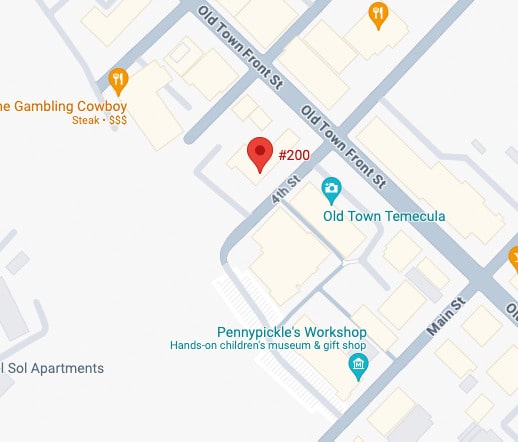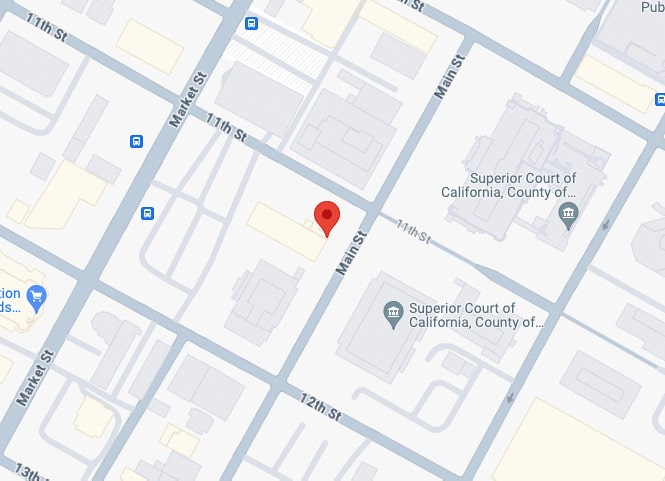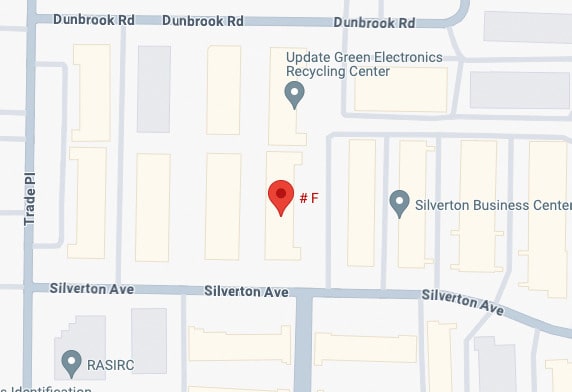If you are here, it means you or someone you love is under arrest, or you need to learn more about the bail bond process, which is a brilliant idea because an arrest can happen to anyone. In most cases, an arrest comes as a surprise, meaning you are unlikely to have money set aside specifically for paying your bail. However, that does not mean you should remain in jail while waiting for the alleged charge’s outcome.
Your freedom should be your first worry and priority after an arrest. One fast way to secure your release from jail is by working with a reputable bail bondsman. At Justice Bail Bonds, we can help you with your bail bond needs soon after an arrest to return to your family and daily activities.
We have several years of experience in the bail bond business, meaning you can rely on us for trustworthy and fast Potrero bail bonds service. That is true even if your arrest occurred past work hours, midnight, or during a holiday.
What Will Happen After an Arrest
Regardless of the reason for your arrest, knowing and understanding what you are likely to expect after that and the steps you can take to help yourself is vital. Briefly explained below is what to anticipate after being arrested for any alleged violation:
-
Booking Process
The first step of the lengthy criminal justice system begins with an arrest. Once a police officer arrests you for either a misdemeanor or felony offense, he/she will hold you in custody temporarily. In some cases, the officer(s) could transfer you to the nearest local jail instead of keeping you in custody at their police station.
However, before being transferred to jail, the arresting officer or booking officer will take you through a booking process which involves the following administrative tasks:
- Recording the alleged charge, your name, date, and year of birth.
- Taking your fingerprint and running them through the online criminal database to see whether you have a criminal record.
- Taking your mugshots, which show your height and skin color.
- A pat-down thorough search on your person to check whether you have contraband like illegal drugs or weapons.
- Confiscating your clothing and other personal properties like necklaces, belts, and watches.
-
Initial Bail
Unlike what several movies and TV shows portray, you do not have to post your bail in court after an arrest. Once the police put you under arrest, you could qualify for a temporary bail which you can post if you are in a financial position to do so and obtain your freedom immediately.
The bail value the police will allow you to pay will depend on the predetermined bail amount on their schedule for your unique violation. A bail schedule is typically a list of predetermined bail amounts for various standard and common misdemeanor charges. That means if your charge is a felony, you will likely wait for your charge’s bail hearing which could occur after 2 to 3 days, to know your bail value.
-
Arraignment or Bail Hearing
Whether you remain in jail or not, arraignment is the next step of the legal justice system after your arrest. During the arraignment hearing, the prosecutor with jurisdiction over your charge will formally read the charges you are facing, and you will have the option to enter your plea of choice, including:
- Guily.
- Not Guilty.
- No contest.
Any of the above plea choices can significantly affect the alleged charge outcome. Your attorney will advise you on what is best for your unique charge before taking your plea choice. Your attorney will also have an opportunity to request your release on bail at this hearing if you are still in custody.
The court will schedule a bail hearing if your initial bail value is unreasonably high or the alleged charge is a felony or severe offense. Exceptional issues that could factor in the court’s decision include:
- Your criminal record.
- Your record of making court appearances after posting bail.
- Your family and community ties.
- Whether you have outstanding warrants.
It is worth noting that specific severe offenses will automatically make you ineligible for bail, for example, treason, terrorist threats, murder, and other capital crimes that could attract the death penalty upon conviction.
Common Myths About Bail Bonds You Ought to Know
Working with a bail bondsman is undoubtedly the best and most convenient way to secure your release after an arrest. However, when finding a reliable bondsman for Potrero bail bonds service, you could find some misconceptions on the internet that could deter you from taking advantage of this affordable way of obtaining your freedom after an arrest.
Below are some of these common misconceptions or myths you should not believe if you need fast Potrero bail bond service:
I. Your Must Pay Your Bondsman Fee in Cash
While the bondsman will accept cash payment for their service fee, it is not a must or mandatory way of payment. Most bail bondsmen will accept you to settle their service fee or premium using checks, PayPal, and credit cards. Others will even structure a flexible payment plan that could allow you to pay their premium over a certain agreed period.
On top of the required premium (10% of your bail value), the bondsman could require you to use collateral to obtain a bail bond. The acceptable collateral could be any valuable asset or property, including a motorbike, car, house, land, or jewelry.
II. A Bondsman Can Negotiate for Lower or Reduced Bail
A bail bondsman has no control over the bail amount you will pay for your unique charge, and his/her role in the legal justice system is to help you obtain your freedom once your bail is set or decided.
The court will ultimately determine the bail value of your unique charge. Your bail value will depend on the severity of the alleged violation and other factors mentioned in the previous paragraph.
III. Only a Family Member Can Help You Pay Your Bail Bond Premium
Another common misconception about bail bonds is that only your family member can help clear the bail bond’s premium, which is untrue. If you know any other person aged eighteen years and above and he/she has the financial resources to clear your bond’s premium, he/she can bond you out of jail.
IV. Bail Bondsmen Are Unethical and Unprofessional
Some people think that bail bondsmen are unprofessional or crooks waiting to take advantage of an arrestee’s situation to make quick money which is untrue. The idea that bondsmen are unethical is a common misconception you should ignore because these people must meet strict requirements to legally obtain a license to offer bail bond service.
Although this field could have a few mediocre experts, a reliable and licensed bondsman operates with top-notch professionalism and integrity.
V. Bail Bondsmen Help Criminals Return to Our Streets
As a matter of right, every arrestee is innocent until the prosecutor proves him/her guilty at trial. If it is a financial burden for you to clear your bail, a bondsman intervenes to help you uphold your legal right to be free, pending your charge’s outcome.
VI. You Can Resume Your Daily Routine While Out on Bond
Securing your freedom after being confined in jail, even for thirty minutes, is undoubtedly the best feeling ever. However, obtaining a release on bond comes with strict terms and requirements you should comply with for the maximum period required by the court. These terms and conditions could include (but are not limited) to the following:
- Return for the scheduled court hearing dates on time.
- Abstain from alcohol and drug use.
- Avoid the company of certain people, especially if the alleged charge is gang-related.
Failure to abide by the above conditions or any other requirement after receiving your freedom on bond can result in severe consequences, including hefty fines and a new criminal charge.
Consequences of Skipping Bail After Securing Potrero Bail Bonds Service
The most important issue to remember after obtaining Potrero bail bonds service is your legal responsibility to show up on the scheduled court dates. Even if posting a bond allows you to resume your daily activities while waiting for your trial date, you will still be under the watchful eye of your bondsman and the court.
If you decide or agree to obtain Potrero bail bond service, you must promise to show up for your court appearances to challenge the alleged charge. When you fail to do so, there are consequences you should anticipate, including:
Bail Bond Forfeiture
When you fail, or your attorney fails to appear for the scheduled court appearances, the court will forfeit your bail bond and issue a bench warrant for your immediate arrest. If your bail bond is forfeited, your bondsman will be financially liable for your bail. When that happens, the bondsman will confiscate your collateral to recover the loss.
A “Failure to Appear” Charge
Unless you have convincing reasons for skipping bail, like severe sickness, the prosecutor will file “a failure to appear” charge against you upon a re-arrest. Penal Code (PC) 1320.5 states that skipping bail is a misdemeanor offense if the underlying alleged violation is a misdemeanor.
Similarly, if the underlying charge is a felony, the prosecutor will file your “failure to appear” charge as a felony. A conviction for a misdemeanor PC 1320.5 violation will attract a jail sentence of up to six months. Conversely, if your charge is a felony, a conviction for a PC 1320.5 violation will carry a jail sentence of not more than three years and a fine not exceeding $5,000.
As you can see above, skipping bail will only worsen your case. If you are unsure about court dates or have any issue that could prevent you from making your court appearances, it would be best to speak with your bondsman or attorney.
Your bondsman and attorney can work together to reschedule your court appearances to a convenient date to avoid the risk of bail forfeiture or another criminal charge. Unfortunately, if you are already under arrest for skipping bail or a PC 1320.5 violation, an attorney can only intervene to help you challenge the charge for the best possible outcome.
Immigration Bail Bonds at a Glance
Like the typical bail bond, an immigration bail bond can help defendants or arrestees obtain their freedom after an arrest. However, an immigration bail bond is specifically available for arrestees under the legal custody of Immigration and Customs Enforcement (ICE) authority for entering the country illegally or violating immigration law.
As long as you can convince the ICE that you are not a threat to the public or national safety, you could qualify for any of the following types of immigration bail bonds to obtain your freedom:
Delivery Bonds
If you decide to obtain your release from legal custody on a delivery bond, you must agree to appear in court on the scheduled hearing dates and comply with a deportation order.
Voluntary Departure Bonds
If you voluntarily agree to leave the country after a specified period, the immigration court judge could grant you a voluntary departure bond. A voluntary departure bond will void any need for forced deportation, meaning the prosecutor presiding over your case does not have to initiate removal proceedings.
Once you leave the country as agreed, the immigration court will refund your bail or bond. However, if you fail to leave the country after obtaining voluntary departure bonds, the court will forfeit your bail and order a re-arrest.
The Role Of Bounty Hunters in the Bail Bond Industry
Although a bail bondsman can use your collateral to pay your bail amount when you skip bail, it is faster and cheaper to bring you back into custody to avoid bail forfeiture. To do that, the bondsman will rely on the service of a bounty hunter to track you down, locate you, and return you into custody as soon as possible.
A bounty hunter is a licensed, trained, and educated individual that plays a crucial role in the bail bond industry or business. Although they have no authority to pose as police officers or enter your premises without your permission, they can inform the police of your whereabouts once they locate you for re-arrest.
In return, the bondsman will pay them a certain percentage of your bond amount, which they will receive once they bring you to justice.
What to Do After Being Denied a Release from Jail on Bail
As mentioned above, not every person qualifies to be out of legal custody on bail. Therefore, you should know what to do if this happens to you upon an arrest because staying in jail while waiting for your charge’s outcome is not an option. The judge presiding over your case has total discretion on whether or not to accept or deny your bail request.
If the judge denies your bail request, you should know the reason and discuss the issue with an attorney if you do not already have one. Your attorney can request a bail review from the court. A different judge will review the initial decision by the court and your case details to decide whether you deserve a release from jail on bail.
If the court denies your bail application again, your attorney can request a bail hearing. During this hearing, the prosecutor and your attorney will present their cases about your bail situation to a judge. The prosecutor will provide evidence and arguments on why he/she thinks you should stay in legal custody without bail.
On the other hand, your attorney will present his/her mitigating arguments to show the court why you are an excellent candidate for release from jail on bail. Ultimately, the judge will decide whether to release you from jail on bail.
Common Crimes That Could Necessitate a Release on Bail
Although the court can grant an own-recognizance (O.R.) release, allowing you to obtain your freedom without posting bail, most crimes require you to pay bail to regain your freedom. These crimes include (but are not limited to):
- Drunk Driving
- Murder
- Arson
- Rape
- Manslaughter
- Kidnapping
- Robbery
- Burglary
- Carjacking
- Hit and run
- Possession of drugs
- Stalking
- Assault
Regardless of whether the alleged charge is a misdemeanor or a felony, you have the right to request the court for a release on bail. A bail bondsman can intervene to offer you quick bail bonds service if the set bail is high or you are unwilling to put your money on the line for your freedom.
If you need Potrero bail bonds service, the following address details of jails and courthouses will come in handy for your quick release from jail:
Jail Address
George F Bailey Detention
Courthouse Address
Family Law Court
Find a Potrero Bail Bonds Service Near Me
At Justice Bail Bonds, we are here 24/7 to help arrestees or defendants reunite with their loved ones until their scheduled court appearances. If you want to learn more about the bail process or need Potrero bail bonds service, you can count on our bondsmen to help you. We can work with you to obtain your release from jail on bond as quickly as possible.
Call us at 951-445-4155 and let our bail bondsmen help you with all your bail bond needs.









